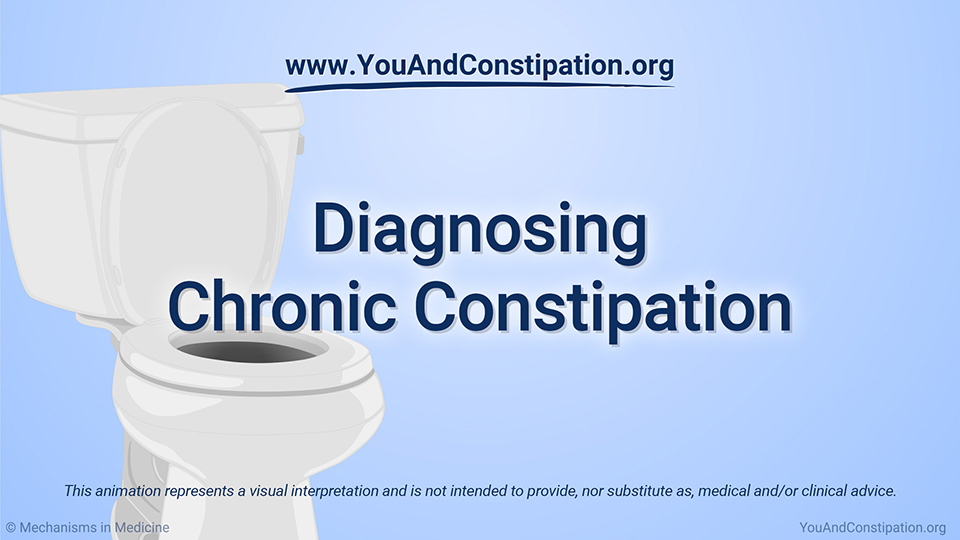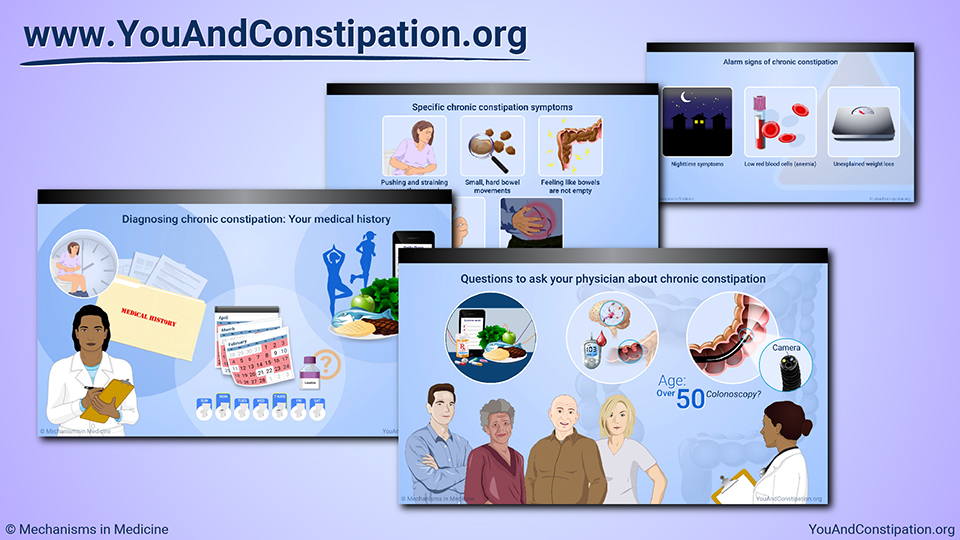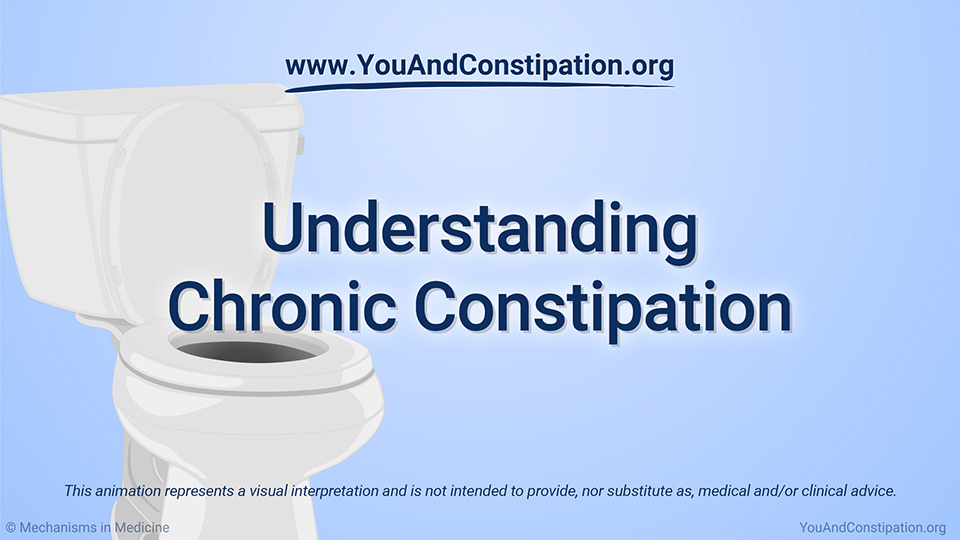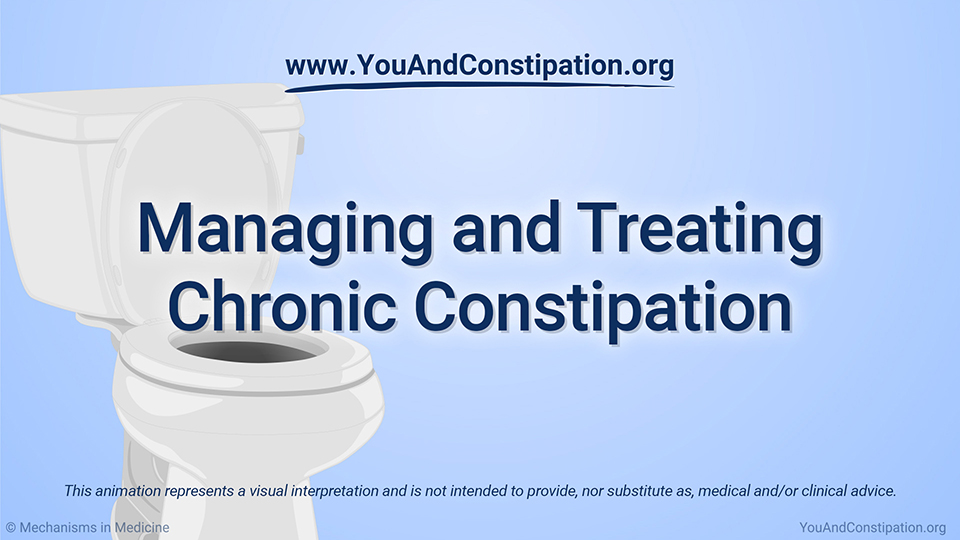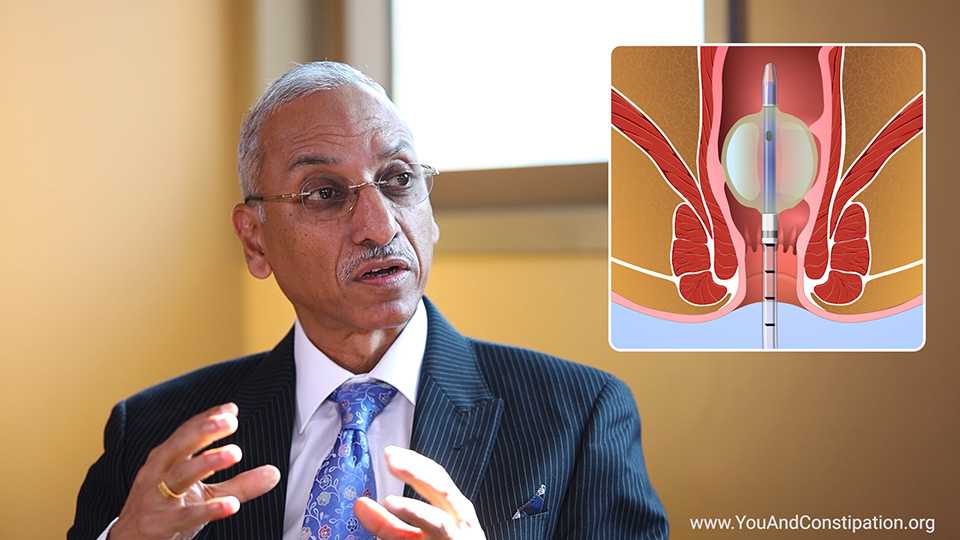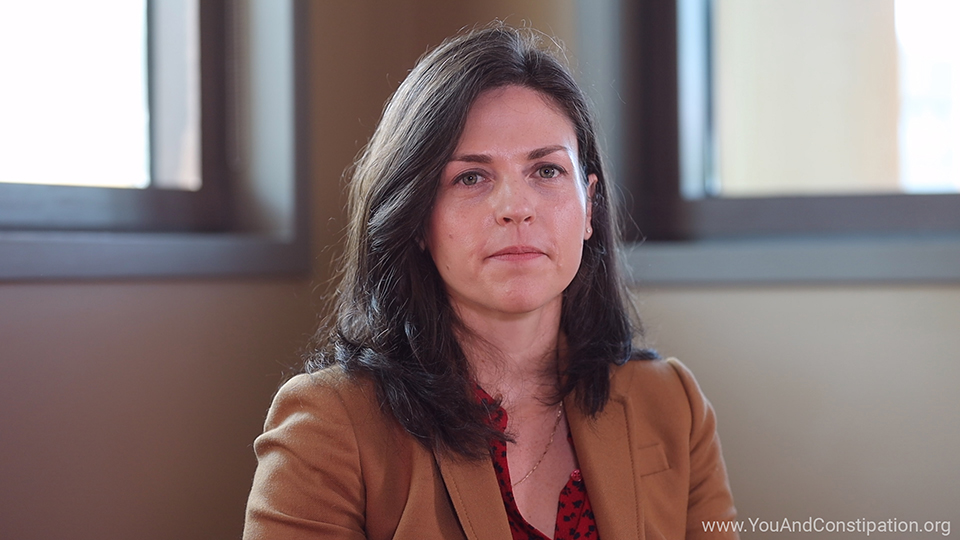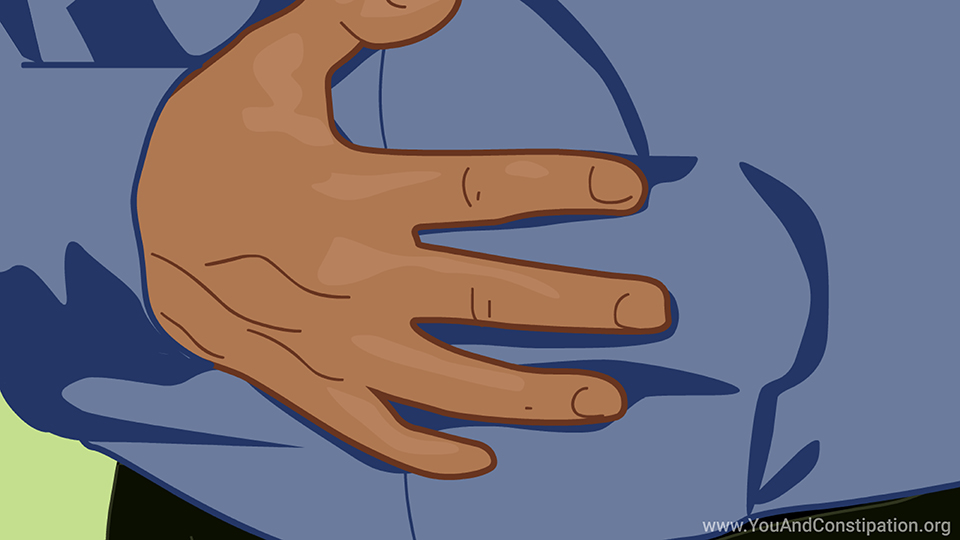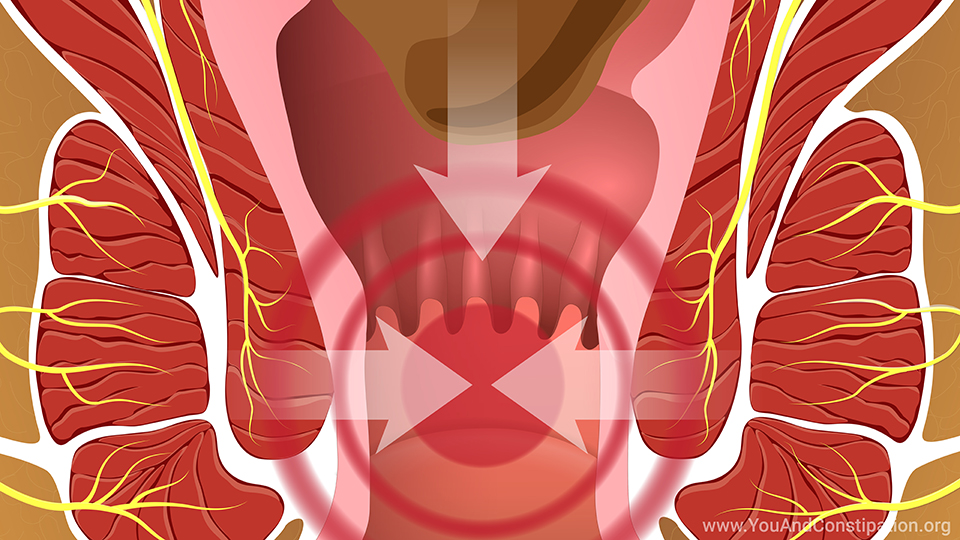Diagnosing Chronic Constipation (CC)
*Please note: This slide show represents a visual interpretation and is not intended to provide, nor substitute as, medical and/or clinical advice.
What is chronic constipation (CC)?
Chronic constipation (CC), is a long-term bowel problem that affects how your digestive system works. It affects about 15 percent of people in the United States.1
How is chronic constipation diagnosed?
Constipation means either difficulty having a bowel movement or having fewer bowel movements than usual. Some physicians consider you to have constipation when you have fewer than 3 bowel movements a week.1 You might feel like you want to go but cannot, or you might feel like you have not emptied your bowels completely.2,3
This animation tells you more about the symptoms of chronic constipation and how your physician diagnoses it.
Why is chronic constipation difficult to diagnose?
The symptoms of chronic constipation are similar to the symptoms of constipation caused by taking pain medicines called opioids.
There is no one test for chronic constipation.
Diagnosing chronic constipation: Your medical history
Your physician will ask you questions about your symptoms and medical history and examine you. They will probably ask how long you have had constipation, how many bowel movements you have each day or week, whether you use laxatives, and more. It can help to keep a list of laxatives you have tried, to share with your physician.
They may ask about your diet, exercise, and physical activity. You might need to keep a daily diary of your bowel movements for a week or two.
Specific chronic constipation symptoms
The symptoms of chronic constipation include:
- Pushing and straining more than usual in order to have a bowel movement.
- Having small, hard bowel movements.
- Feeling like you did not empty your bowels or that your bowels are blocked.
- Using your fingers to assist with bowel movements.
- Having abdominal pain and a bloated feeling.
Specific chronic constipation symptoms
Symptoms also include having a bowel movement less than 3 times per week without taking medicines. If you take laxatives, you may have one more often than 3 times a week.
How is chronic constipation different from occasional constipation?
Chronic constipation lasts much longer than occasional constipation. You might get constipation when you travel, eat certain foods, or take certain medications. It is called occasional constipation because it only happens now and then, and it goes away when you go back to your regular routine.
What is opioid-induced constipation?
Chronic constipation is different from a type of constipation called "opioid-induced constipation". This type happens when you take strong pain medicines called "opioids". Constipation is one of the most common side effects of these medicines.
Other medicines can cause constipation, but it is especially common with opioids. If you develop constipation after you start taking opioids, you have opioid-induced constipation, not chronic constipation.
Alarm signs of chronic constipation
There are some alarm signs you should know if you have chronic constipation. Call your physician if you have:
- Symptoms that happen at night.
- A low red blood cell count, called anemia.
- Weight loss that you cannot explain.4
Questions to ask your physician about chronic constipation
Ask your physician if anything in your diet, lifestyle, or medications could be causing the constipation. Also ask them to check for conditions that might cause it, such as diabetes, Parkinson’s disease, another nerve disorder, or a tumor.
If you are over 50 and have not had a colonoscopy, or over 45 if you are African American, ask if you should have one now. This test uses a small lighted tube to look inside your digestive system for problems. It is not always necessary if you have constipation, but it can be very helpful for finding health conditions.
References
- Simren M, Palsson OS, Whitehead WE. Update on Rome IV Criteria for Colorectal Disorders: Implications for Clinical Practice. Curr Gastroenterol Rep 2017;19(4):15. doi:10.1007/s11894-017-0554-0
- About constipation. International Foundation for Gastrointestinal Disorders. Available at https://www.aboutconstipation.org/. Accessed December 2019.
- Ford AC, Moayyedi P, Lacy BE, et al. American College of Gastroenterology monograph on the management of irritable bowel syndrome and chronic idiopathic constipation. Am J Gastroenterol 2014;109(S1):S2-S26.
- Lacy BE, Mearin F, Chang L, et al. Bowel disorders. Gastroenterology 2016;150(6):1393-1407.
- Tse Y, Armstrong D, Andrews CN, et al. Treatment algorithm for chronic idiopathic constipation and constipation-predominant irritable bowel syndrome derived from a Canadian national survey and needs assessment on choices of therapeutic agents. Can J Gastroenterol Hepatol 2017;2017:8612189.
- Andrews CN, Storr M. The pathophysiology of chronic constipation. Can J Gastroenterol 2011;25(SB):16B-21B.
This slide show describes the
symptoms of
chronic constipation, and how your physician makes a
diagnosis. Depending on the results of the medical history and physical examination, your physician may recommend
blood and other tests, such as checking for bowel problems, and examining the colon by colonoscopy.
-
Share with family and friends:
Click here to take our SURVEY
Your feedback is important to us! We will use your feedback to develop future areas of content about constipation which will help other patients, caregivers and families.
